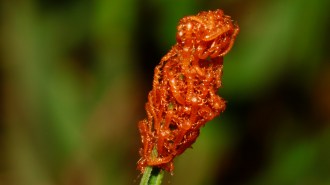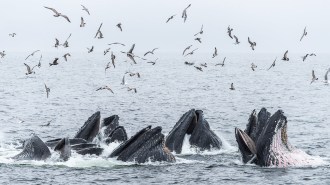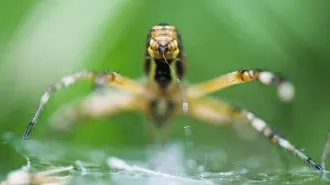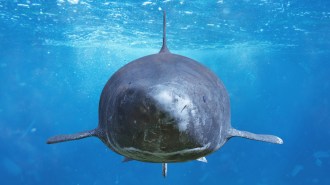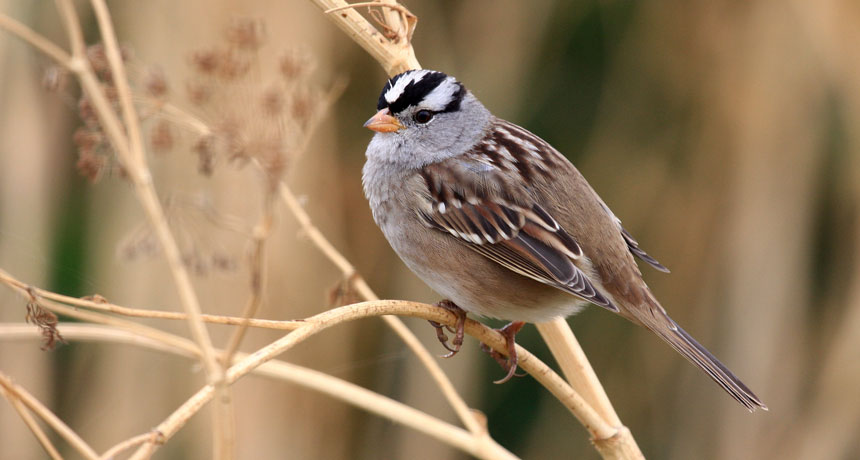
FOR THE BIRDS Eating even a few pesticide-coated seeds can disorient white-crowned sparrows, new studies suggest.
Chin tin tin/wikimedia commons (CC BY 2.0)
- More than 2 years ago
MINNEAPOLIS — Pesticides that kill insects can also have short-term effects on seed-eating birds. Ingesting even small amounts of imidacloprid, a common neonicotinoid pesticide, can disorient migratory white-crowned sparrows, researchers report.
Neonicotinoid pesticides were designed to be safer than traditional pesticides: toxic to insects, but comparatively harmless to other animals. But the new findings add to evidence suggesting that the widely used pesticides, which are chemically similar to nicotine, might be sending ecological ripples beyond the intended targets.
In lab studies, researchers captured wild white-crowned sparrows, Zonotrichia leucophrys, that were migrating north and fed them small doses of imidacloprid for three days — the amount that birds would get from eating a few pesticide-coated wheat seeds. The birds that ate the pesticides lost weight, study coauthor Margaret Eng reported November 15 at the annual meeting of the Society of Environmental Toxicology and Chemistry North America.
And when placed in a large, inverted funnel used to study birds’ migratory orientations, the neonic-fed birds tried to fly in directions other than north. Birds that consumed sunflower oil instead showed no ill effects.
For the birds that ate pesticides, the damage was temporary — after two weeks, the birds regained normal function and body weight, Eng, a toxicologist at the University of Saskatchewan in Saskatoon, Canada, and her colleagues also reported November 9 in Scientific Reports.
The fact that the effects reverse after a period of time is “good news,” says Thomas Bean, a toxicologist at the University of Maryland in College Park who wasn’t part of the study. The short-term malaise might incentivize birds to avoid that food in the future. Bean has found that Japanese quail, Coturnix japonica, also show similar temporary behavioral effects in response to neonicotinoids.
Preliminary results from field studies also appear to confirm the published lab findings. Eng’s team outfitted white-crowned sparrows in the wild with tiny tracking tags. The scientists gave the birds small amounts of pesticides, held the birds for six hours, and then released them.
When released, the birds still had traces of the chemicals in their blood plasma, the researchers reported at the November meeting. On average, there wasn’t a difference between groups in how long the birds hung around before resuming migration, but all of the birds that waited an abnormally long time had eaten neonics. Those animals’ flight paths also appeared to be slightly skewed from the route favored by the control birds.
Those analyses are preliminary, cautions Eng, and a closer look at the data could change the story.


